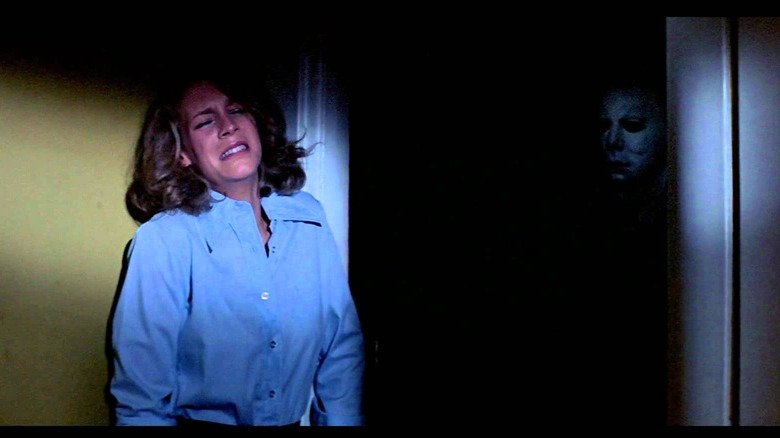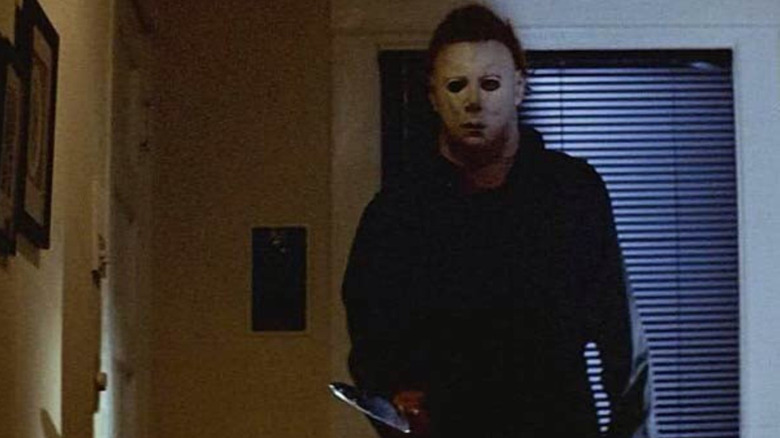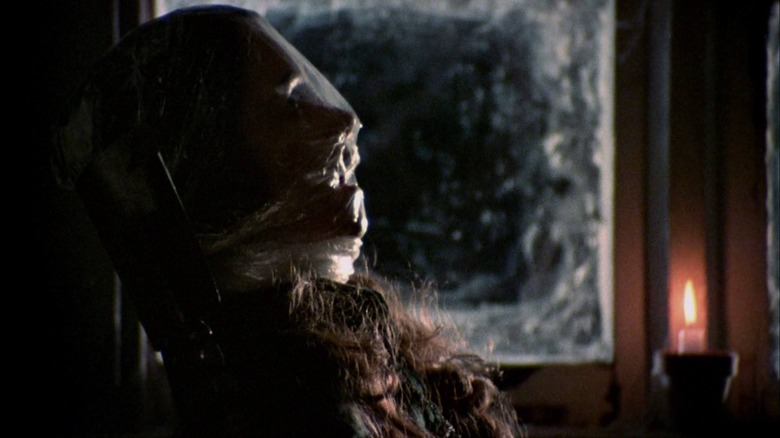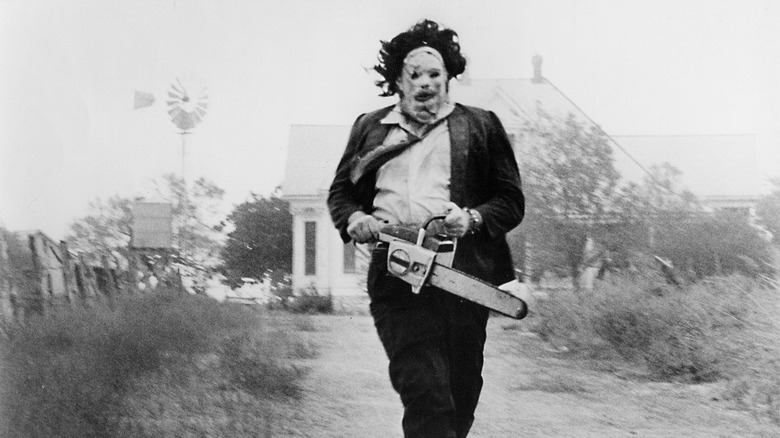Actually, Halloween Isn't A Knock-Off Of The Texas Chain Saw Massacre
The first word on "Halloween Kills" is starting to come out and it doesn't seem to be scoring any points with the big trade critics. The Hollywood Reporter's David Rooney wasn't impressed, comparing the film to the lesser "Halloween" sequels of the '80s and '90s, and Owen Gleiberman of Variety went a step further and pretty much said the original film wasn't any good in the first place. (For the record, /Film's critic was quite warm on it.)
I'm not going to debate Gleiberman's opinion of the new movie. He could be right and it could be bad. I haven't seen it yet so I won't jump into that conversation. But I have seen the original "Halloween" once or twice or thirty times, and I'd like to address his opening gambit.
The 1970s Was A Golden Age for Horror
Here is Mr. Gleiberman's quote in full:
That the original was, itself, a mayhem-by-the-numbers knockoff of 'The Texas Chain Saw Massacre' says a lot about the state of horror movies back then, but let's leave that for another time.
First off, he seems to imply that the state of horror cinema of the 1970s was less than ideal when that was objectively not the case. This was an era where horror transcended its usual boundaries. We had mainstream serious horror like "Jaws," "Carrie," "The Omen," "Alien," and, of course, "The Exorcist." We also had artistic horror films like Dario Argento's "Suspiria," David Lynch's "Eraserhead," and the dream logic insanity of Don Coscarelli's "Phantasm."
There was a lot of drive-in schlock as well, some terrible films that will be forgotten by time and some that are super fun and will survive as cult oddities, but that's true of just about any decade of cinema; you remember the hits.
My point is that the 1970s were objectively an amazing period of time for all cinema, especially genre. Saying that a "Texas Chain Saw Massacre" knockoff is indicative of the cinema at that time is a head-scratcher at best, even if it was an accurate critique of John Carpenter's "Halloween." And it is not.
Let me help you out there, Mr. Gleiberman.
The movie you want to accuse "Halloween" of being a knockoff of is not "The Texas Chain Saw Massacre" (although points for citing the correct title, with a space between "Chain" and "Saw"). Actually, it's Bob Clark's "Black Christmas."
Black Christmas Vs Halloween
You could make the argument that the producers were chasing the success of "The Texas Chain Saw Massacre," a low-budget, gritty, intense horror film that earned tons of profit in theaters. But, creatively, "Halloween" has almost nothing to do with "Chain Saw." Stylistically and tonally the film is way more in line with the 1974 Canadian proto-slasher "Black Christmas."
"Black Christmas" has a faceless killer and we see a good amount of the story through his POV. The movie takes place at a sorority house over Christmas break and the residents of the house are picked off one by one.
But "Black Christmas" has a little more on its mind than most slashers. Buried in amongst the creepy imagery and disturbing slayings is a story about a young college girl whose relationship is crumbling because she got pregnant and doesn't want to keep it. Her boyfriend does and the debates they have around this subject are nuanced, not even just for its time. This adds a depth to the characters that is typically missing from the more body-count-focused slashers.
Yes, "Halloween" also has POV killer shots, but similarly to "Black Christmas," there's a lot more going on beneath the surface. Maybe nothing as serious and complicated as a relationship dissolving because one of them wants to terminate a pregnancy and the other doesn't, but Michael Myers was never about a crazy guy in a mask. He is a stand-in for relentless, emotionless death itself. His white mask is a screen for us to project all our fears onto.
I'm not saying anything any casual horror fan couldn't already point out, which is why Gleiberman's assertion is so mind-boggling.
Michael Myers is Not Leatherface
Now, I love "The Texas Chain Saw Massacre" to death. It is easily one of the top ten most influential horror films of all time. There's something about that film that clings to your skin, a tone it strikes that cuts right past any defenses the viewer has and unnerves you to your core.
But I don't see a depth to Leatherface. He is a crazy cannibal in a mask. Yeah, he loves his family and his family loves him, but the subtext of the character isn't the focus of that film.
So, there's your argument, Mr. Gleiberman. If you want to call "Halloween" a by-the-numbers "Black Christmas" knockoff, then you're at least in the ballpark to make your point.
However, I'd radically disagree with the "by-the-numbers" attack. While Carpenter's film borrowed a lot of technique from "Black Christmas" there was no standard slasher formula when it came out. Perhaps Mr. Gleiberman is projecting the long trail of slasher films that followed "Halloween" onto that original release, but I'll argue this last point until I'm out of breath:
"Halloween" didn't follow a template. It set one.



